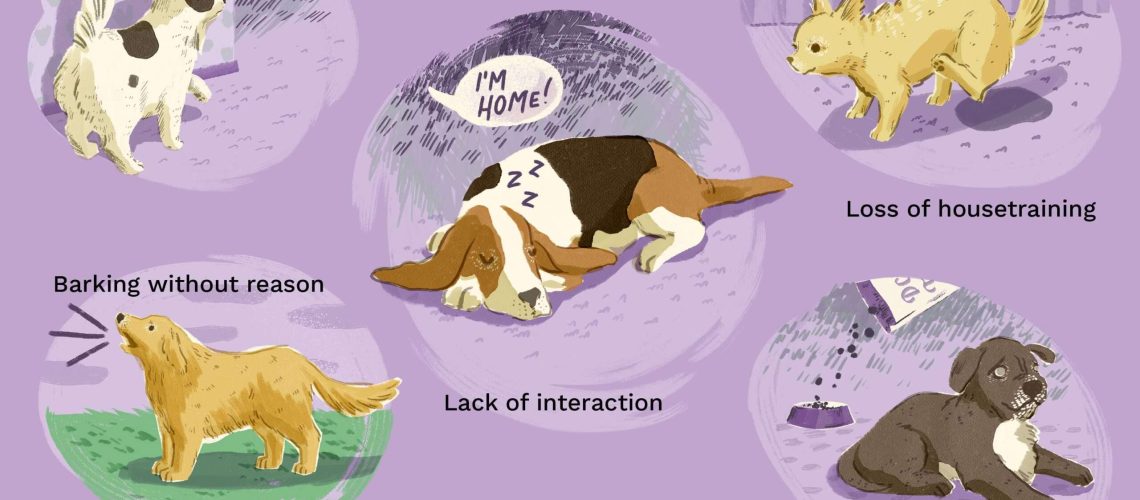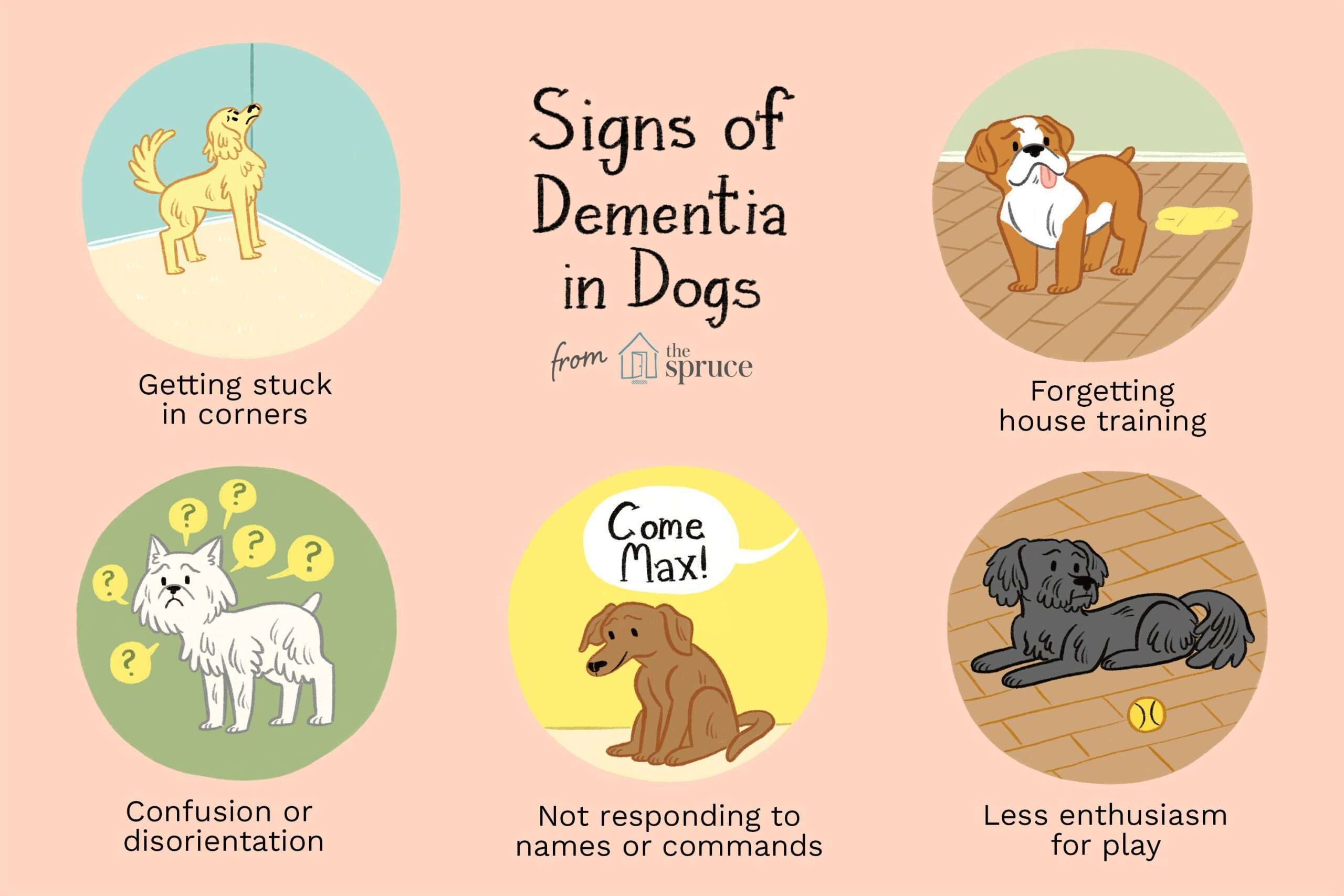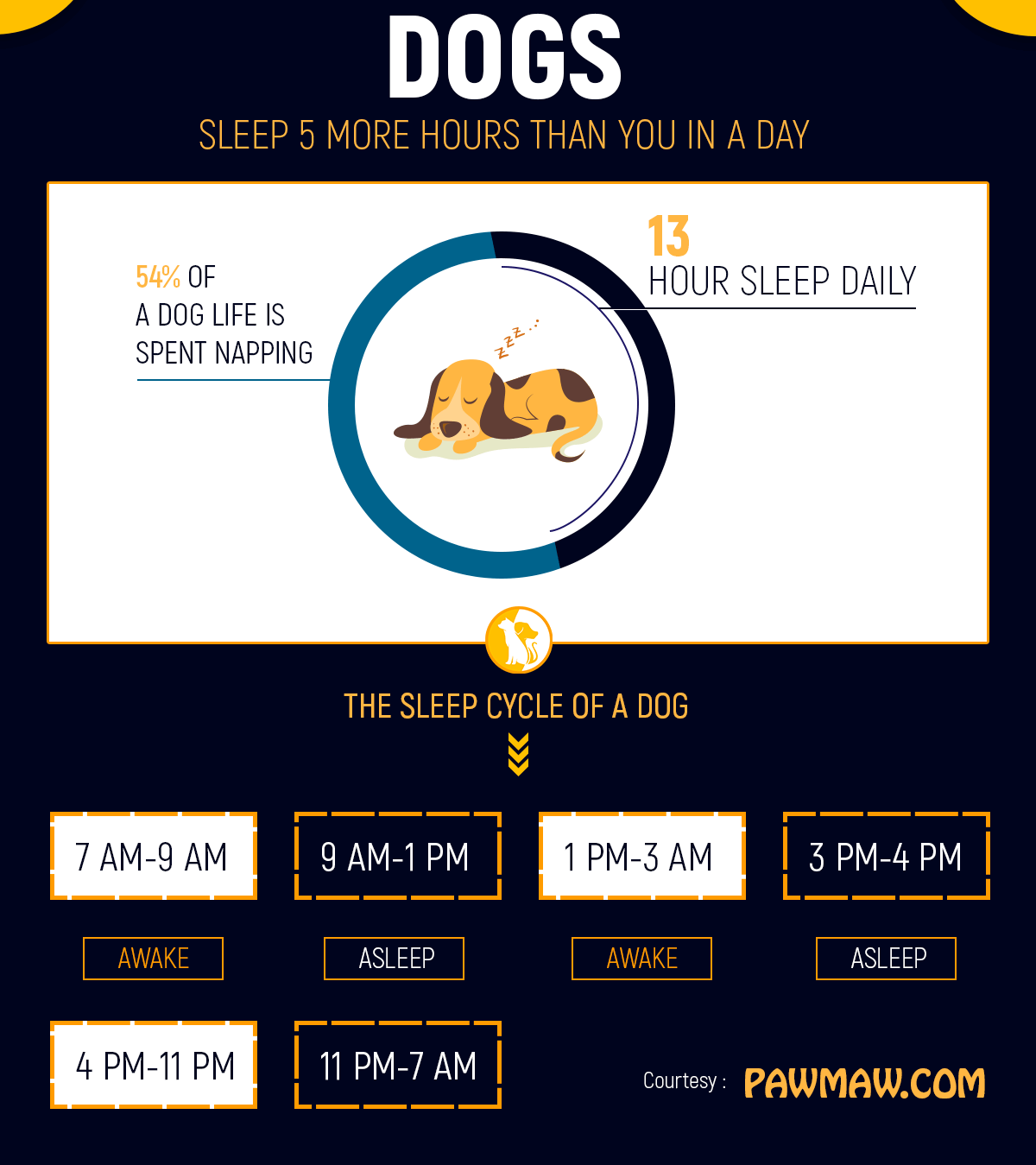Key Takeaways:
- Dementia and senility are common conditions in aging dogs, affecting their cognitive function and behavior.
- Early signs of dementia in dogs include disorientation, changes in sleep patterns, decreased appetite, and loss of interest in activities.
- Regular mental stimulation and physical exercise can help slow down the progression of dementia in dogs.
- Medications and supplements may be prescribed by a veterinarian to manage symptoms and improve cognitive function in dogs with dementia.
- A supportive and familiar environment, along with a consistent routine, can help reduce anxiety and confusion in dogs with dementia.
Are you a dog lover? If so, then you won't want to miss out on exploring the fascinating world of dementia and senility in dogs. This topic may not be the first thing that comes to mind when we think about our furry friends, but understanding it can bring immense value to both you and your canine companion.
Imagine being able to recognize the signs of dementia in your aging dog, allowing you to provide them with the care and support they need. By delving into this subject, you will gain valuable insights into how to improve their quality of life during their golden years.
But why is understanding dementia and senility in dogs essential? Well, did you know that over 14% of dogs aged 8 years or older develop cognitive dysfunction syndrome (CDS)? That means there's a significant chance your beloved pet could be affected by this condition. By educating yourself about it, you can take proactive steps to prevent or manage its progression.
Now, let's dive into the world of dementia and senility in dogs. We'll explore the symptoms, causes, and potential treatments for this condition. Together, we'll uncover practical strategies that will make a positive difference in your dog's life as they age gracefully.
So grab a seat, get ready to learn, and let's embark on this enlightening journey into the world of dementia and senility in dogs. Because every dog deserves our love and understanding as they navigate their senior years with grace and dignity.
Understanding Dementia in Dogs: How It Affects Their Brain
Dementia is a condition that affects the brain, and it can also occur in dogs. When a dog has dementia, their brain function starts to decline, which can lead to memory loss and confusion. Just like in humans, the exact cause of dementia in dogs is not fully understood. However, researchers believe that it may be related to the buildup of abnormal proteins in the brain.
As dementia progresses in dogs, their brain cells become damaged and die off. This can result in changes in behavior and personality. For example, a dog with dementia may start to forget familiar people or places. They may also have difficulty learning new things or following commands they used to know well.
Effects on the Brain
In a healthy dog's brain, there are billions of nerve cells called neurons that communicate with each other through electrical signals. These signals allow the brain to process information and control various body functions. However, in a dog with dementia, these neurons start to malfunction and die.
This neuronal death primarily affects two areas of the brain: the cerebral cortex (which is responsible for thinking, learning, and memory) and the hippocampus (which plays a crucial role in forming new memories). As these areas deteriorate, a dog's cognitive abilities decline.
Recognizing Senility in Dogs: Common Signs and Symptoms
Sometimes dogs experience senility as they age - just like humans do! Senility is another word for cognitive dysfunction syndrome (CDS), which is similar to dementia. If your furry friend has senility, you might notice some changes in their behavior.
One common sign of senility is confusion or disorientation. Your dog may seem lost or have trouble finding their way around familiar places. They might also forget where they put their toys or have difficulty recognizing familiar people or other pets in the household.
Common Signs and Symptoms
Here are some other signs and symptoms to look out for:
- Increased sleepiness or changes in sleep patterns
- Loss of house-training skills
- Changes in appetite, such as eating less or forgetting to eat
- Becoming more anxious, restless, or irritable
- Pacing or wandering aimlessly
- Decreased interest in playing or interacting with family members
If you notice any of these signs in your dog, it's important to consult with a veterinarian. They can help determine if senility is the cause and provide guidance on managing the condition.
The Role of Aging in Canine Dementia Development
Aging plays a significant role in the development of dementia in dogs. Just like humans, as dogs get older, their bodies go through various changes - including changes in their brain function.
As a dog ages, their brain cells may not work as efficiently as before. This can lead to a decline in cognitive abilities and an increased risk of developing dementia. The exact age at which dogs may start showing signs of dementia can vary depending on the individual dog and breed.
The Aging Process and Brain Health
During the aging process, there are several factors that can contribute to brain health decline:
- Reduced blood flow to the brain: As dogs age, blood vessels supplying oxygen and nutrients to the brain may become less efficient.
- Inflammation: Chronic inflammation throughout the body can also affect the brain and contribute to cognitive decline.
- Genetic factors: Certain dog breeds may have a higher predisposition to developing dementia due to genetic factors.
While aging is a natural process, there are steps you can take to help support your dog's brain health as they get older. Providing mental stimulation, regular exercise, and a balanced diet can all contribute to maintaining cognitive function in senior dogs.
Dementia Prone Dog Breeds: Is Your Furry Friend at Risk?
Understanding Dementia in Dogs
Dementia, also known as canine cognitive dysfunction (CCD), is a condition that affects the brain function of dogs, particularly as they age. Just like humans, dogs can experience memory loss, confusion, and behavioral changes as they get older. Certain dog breeds are more prone to developing dementia than others. These breeds include but are not limited to Yorkshire Terriers, Beagles, Boxers, and Golden Retrievers. If you own one of these breeds or have an older dog in general, it's important to be aware of the signs and symptoms of dementia.
Recognizing the Signs of Canine Dementia
It's crucial for dog owners to be able to recognize the signs of canine dementia early on. Some common symptoms include disorientation, changes in sleep patterns, loss of house training skills, decreased interest in activities or toys, increased anxiety or irritability, and difficulty recognizing familiar people or objects. If you notice any of these signs in your furry friend, it may be time to consult with a veterinarian for a proper diagnosis.
Possible Causes and Risk Factors for Dog Dementia
Aging as a Major Factor
One of the primary causes of dog dementia is simply old age. As dogs get older, their brain cells naturally deteriorate over time. This leads to a decline in cognitive function and can eventually result in dementia. However, there are other risk factors that can contribute to the development of this condition as well.
Genetic Predisposition
Certain dog breeds have a genetic predisposition to developing dementia. For example, studies have shown that smaller breeds tend to have a higher risk compared to larger breeds. Additionally, if your dog has a family history of dementia, they may be more susceptible to developing the condition themselves.
Lifestyle Factors
Lifestyle factors such as poor diet, lack of mental and physical stimulation, and obesity can also increase the risk of dog dementia. Providing a balanced diet, regular exercise, and engaging your furry friend in mentally stimulating activities can help reduce the chances of them developing this condition.
Diet and Exercise: Can They Prevent or Manage Dog Dementia?
The Role of Diet in Dog Dementia
Proper nutrition plays a vital role in preventing and managing dog dementia. Feeding your furry friend a high-quality diet that is rich in antioxidants, omega-3 fatty acids, and vitamins E and C can help support brain health. These nutrients have been shown to have neuroprotective properties and can potentially slow down the progression of cognitive decline.
The Importance of Exercise for Brain Health
Regular exercise is not only beneficial for your dog's physical health but also their mental well-being. Engaging in physical activities helps stimulate blood flow to the brain, which promotes the growth of new neurons and enhances cognitive function. Incorporating daily walks, playtime, and interactive toys into your dog's routine can contribute to their overall brain health.
Treatments for Canine Dementia: Improving Cognitive Function
Medication Options
There are certain medications available that can help manage the symptoms of canine dementia. These medications work by increasing blood flow to the brain or regulating neurotransmitters involved in cognitive function. However, it's important to consult with a veterinarian before starting any medication regimen for your furry friend.
Environmental Enrichment
Creating an enriched environment for your dog can greatly improve their cognitive function. This includes providing them with mentally stimulating toys, puzzles, and interactive games. Regular socialization with other dogs and humans can also help keep their brain active and engaged.
Behavioral Training
Behavioral training can be beneficial for dogs with dementia as it helps them adapt to their changing cognitive abilities. Simple commands, such as sit or stay, can be reinforced through positive reinforcement techniques. This not only helps maintain their mental sharpness but also strengthens the bond between you and your furry friend.
In conclusion, understanding the risk factors, signs, and potential treatments for canine dementia is crucial for dog owners. By being proactive in providing a healthy lifestyle, including a balanced diet and regular exercise, you can potentially reduce the risk of your furry friend developing this condition. Additionally, recognizing the early signs of dementia and seeking veterinary guidance can lead to timely interventions that may improve cognitive function and overall quality of life for your beloved pet.
In conclusion, dementia and senility in dogs are conditions that can affect older dogs, causing memory loss, confusion, and other behavioral changes. It is important for dog owners to be aware of these signs and provide proper care and support for their furry friends as they age.
How long can a senior dog live with dementia?
On average, a dog diagnosed with dementia can live for approximately two years. However, the lifespan can vary depending on the dog's overall health, the rate at which the disease progresses, and how early the symptoms were detected.
What are the last stages of dementia in a dog?
During the final phase, the symptoms become more severe. The previously mentioned signs intensify, and your dog may start wandering around the house during the night instead of sleeping. Additionally, your dog may begin barking at imaginary objects.
How do I know if my dog with dementia is suffering?
Here are the typical signs of canine dementia: Feeling disoriented and confused, seeming lost even in familiar environments. Showing signs of anxiety. Forgetting routines, as well as previously learned training and rules.
Can dog dementia get worse suddenly?
While the initial symptoms of the disorder are not severe, they progressively deteriorate over time, going beyond what is typically seen with normal aging. These animals undergo a "cognitive decline," which refers to the gradual decrease in the brain's capacity to carry out regular tasks.
Is my dogs dementia getting worse?
Around 25% of dogs initially diagnosed with mild cognitive dysfunction had advanced to moderate dysfunction after six months. This percentage increased to 50% after one year, which is approximately five times faster than the progression of Alzheimer's in humans.
Do dogs with dementia sleep more?
Recently, researchers have demonstrated that dogs with canine cognitive dysfunction syndrome (CCDS), which is similar to dementia in humans, experience a decrease in slow wave sleep (SWS) and delta brain waves. As a result, these dogs are sleeping less and not as deeply as they used to. The findings have been published in Frontiers in Veterinary Science.

















